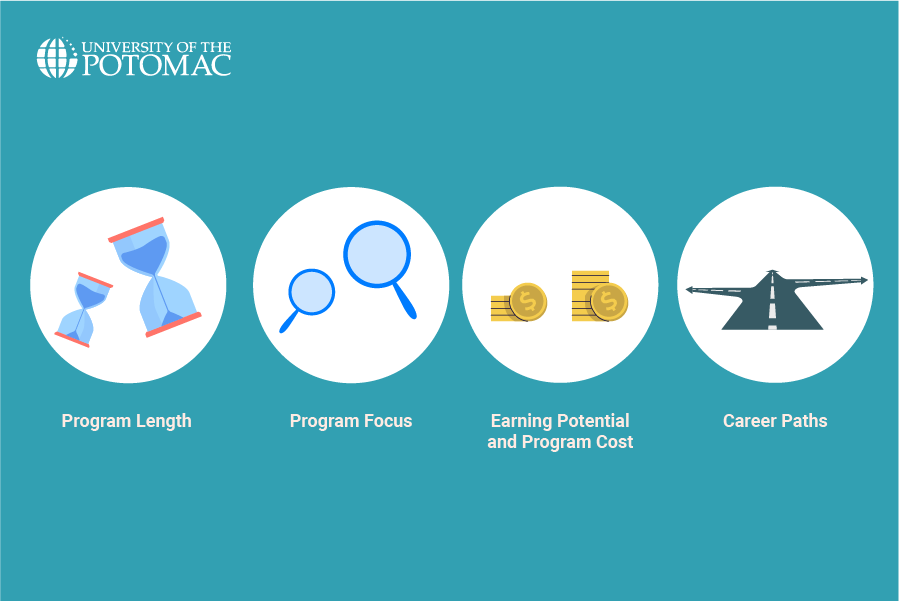Embarking on the educational journey often feels akin to navigating a complex labyrinth, teeming with myriad levels and diverging pathways. Although the transition from elementary through high school to college may appear linear, a closer examination uncovers a rich tapestry of distinctions within these broad educational stages.
Consider, for instance, the undergraduate landscape, where the terms “associate’s” and “bachelor’s” degrees emerge as critical landmarks. But how do these academic credentials differ? Delve deeper with us as we unravel the intricacies of educational levels, spotlighting the pivotal query: associate’s versus bachelor’s degree—what distinguishes one from the other and which one should you choose?
What Is an Associate’s Degree?
An associate’s degree is an undergraduate academic program predominantly offered by community colleges, technical schools, and some universities. Its primary goal is to furnish students with essential knowledge and skills in a specific field of study, thereby preparing them for entry-level positions in the workforce or for pursuing further education at the bachelor’s degree level.
Associate’s degrees offered by UOTP
University of the Potomac (UOTP) offers a comprehensive range of associate’s degrees designed to furnish students with the vital knowledge and skills required for success in various professional arenas. These programs include:
- Associate of Science in Business: It is designed to offer learners a comprehensive foundation in business leadership methodologies and techniques applicable across diverse enterprises.
- Associate of Science in Early Childhood Development: It provides students with a solid understanding of the education system and teaches them how to design and implement age-appropriate lessons that align with learning objectives.
- Associate of Science in Information Technology: Through it, students acquire an understanding of information storage, retrieval, manipulation, transmission, communication, presentation, and analysis.
- Associate of Science in Network Security Management: It explores topics such as network protocols, firewall administration, intrusion detection, cryptography, and risk management.
What Is a Bachelor’s Degree?
A bachelor’s degree is a higher education undergraduate program provided by colleges and universities. It signifies a more advanced level of academic achievement compared to an associate’s degree and involves a broader and more intensive curriculum. Upon completing this degree, graduates are equipped to embark on careers in entry to mid-level positions or continue their education at the master’s or doctoral levels.
Bachelor’s degrees offered by UOTP
UOTP also offers a diverse range of bachelor’s degrees across various disciplines to cater to students’ diverse interests and career aspirations. These include:
- Bachelor of Science in Accounting: It offers a curriculum that provides students with the essential practical skills for a range of accounting roles.
- Bachelor of Science in Business: Through coursework covering accounting, finance, management, marketing, and operations, the program helps students develop skills and abilities crucial for addressing challenges in today’s business environment.
- Bachelor of Science in Computer Science: It prepares students for various professional certifications and specializations in software engineering, database management, game design, mobile application development, and cybersecurity.
- Bachelor of Science in Cybersecurity: With a curriculum emphasizing network security, policy development, and risk management, graduates are poised for rewarding careers in combating cybercrime and protecting vital information in the digital world.
- Bachelor of Science in Early Childhood Development: The program prepares students to become proficient instructors capable of nurturing young learners from infancy to the third grade.
- Bachelor of Science in Geospatial Information Technology: It equips students with the knowledge and skills to apply geospatial technology across governmental, business, and industry settings through instruction in spatial thinking, remote sensing, cartography, and geospatial modeling.
- Bachelor of Science in Government Contract Management: The program offers specialized training for contract negotiation and management professionals within government agencies and private organizations.
- Bachelor of Health Information Management: From electronic health records to healthcare compliance, students learn to record, store, and evaluate healthcare data, facilitating informed decision-making in clinical and administrative settings.
- Bachelor of Science in Hospitality: Through a curriculum emphasizing business strategy, sustainability, and hands-on experience, graduates are prepared to lead financially sound and socially responsible hospitality businesses.
- Bachelor of Science in Information Technology: The program provides students with a theoretical understanding and practical expertise in managing organizational technical resources.
- Bachelor of Science in International Business: The program equips students with fundamental managerial skills through coursework on international markets, cross-cultural communication, and strategic management.
Can You Get a Bachelor’s Degree Before an Associate’s Degree?
There is no strict requirement mandating the completion of an associate’s degree prior to enrolling in a bachelor’s program. Obtaining a bachelor’s degree before an associate degree is indeed possible and quite common.
Generally, students who are certain about their academic and career interests choose to bypass the associate’s degree and dive straight into a bachelor’s program to expedite their time in higher education.
Additionally, some bachelor’s degree programs offer accelerated or combined degree options that allow students to earn both an associate’s and a bachelor’s degree simultaneously, potentially saving time and tuition costs.
5 Differences Between Associate’s and Bachelor’s Degrees

In the following sections, we will examine the difference between an associate’s and a bachelor’s degree. From program length and focus to earning potential, program cost, and career paths, let’s compare associate’s degree vs. bachelor’s degree to provide insight into the educational pathways and opportunities they offer.
Interested in pursuing a degree?
Fill out the form and get all admission information you need regarding your chosen program.
This will only take a moment.
Message Received!
Thank you for reaching out to us. We will review your message and get right back to you within 24 hours.
If there is an urgent matter and you need to speak to someone immediately you can call at the following phone number:
- We value your privacy.
1. Program length
Associate’s degrees typically require two years of full-time study, while bachelor’s degrees usually take four years. This distinction in program length is due to the depth of coursework needed for each degree level. Associate’s degree programs offer a condensed curriculum focused on foundational knowledge and skills in a specific field. In contrast, bachelor’s degree programs provide a more comprehensive education that includes general education requirements and major-specific coursework.
2. Program focus
Associate’s degree programs tend to have a narrower focus than bachelor’s degree programs. The former are often designed to provide practical, hands-on training for entry-level positions in specific industries or professions. On the other hand, bachelor’s degree programs offer a broader educational experience, and students can explore a wider range of subjects and develop skills beyond their major areas of study.
3. Earning potential
In general, individuals with bachelor’s degrees have higher earning potential compared to those with associate’s degrees. The additional years of education and the broader scope of coursework provided by bachelor’s degree programs often lead to greater career advancement opportunities and higher salaries.
While associate’s degree holders can still find well-paying jobs in their respective fields, bachelor’s degree holders tend to command higher wages throughout their careers, especially in professions that require advanced knowledge and expertise.
4. Program cost
Associate’s degree programs typically cost less than bachelor’s programs due to their shorter duration and fewer credit requirements. This lower cost can make associate’s degrees more accessible to students looking for affordable options or who want to minimize student loan debt. However, it’s essential to consider the potential return on investment when weighing the cost of education against future earning potential.
5. Career paths
Associate’s and bachelor’s degrees lead to different career paths and opportunities. Associate’s degree holders often pursue careers in technical fields, healthcare, business administration, or other industries requiring specialized skills.
Bachelor’s degree holders, on the other hand, have a broader range of career options available to them, including management positions, professional roles in fields like engineering and education, and opportunities for graduate study and research.
Associate’s Degree vs. Bachelor’s Degree: Which One Should You Choose?
Both an associate’s degree and a bachelor’s degree are excellent choices, each offering distinct benefits depending on your academic goals, career aspirations, and personal circumstances. When deciding between the two, it’s essential to consider your long-term objectives and the level of commitment you are willing to undertake.
If you are eager to enter the workforce quickly and pursue a career in a specialized field, an associate’s degree might be the ideal option as it has a shorter duration and focuses on providing practical skills relevant to specific industries. On the other hand, if you aim for more advanced positions or seek broader knowledge in a particular field, a bachelor’s degree may be the better choice.
Take the time to research and compare programs, weighing the pros and cons of each option against your individual goals and circumstances. Ultimately, the best choice is the one that aligns with your aspirations, interests, and resources, setting you on a path toward success and fulfillment in your chosen field.
The Bottom Line
Ultimately, while both associate’s and bachelor’s degrees fall under the umbrella of undergraduate education, their differences are substantial and should be carefully considered when charting your academic path.
Ready to take the next step in your educational journey? Explore our associate’s and bachelor’s degree offerings, check out our competitive tuition rates, and join us as we prepare you for academic success.
FAQs
What is better, an associate’s or bachelor’s?
It depends on individual goals and circumstances, as both have unique advantages. An associate’s degree offers quicker entry into the workforce, while a bachelor’s degree provides broader career opportunities and higher earning potential in the long term.
What are the disadvantages of an associate’s degree?
Disadvantages of an associate’s degree include limited career advancement opportunities compared to a bachelor’s degree, potentially lower earning potential, and fewer job prospects in certain industries.
Can you skip from an associate’s to a master’s degree?
Yes, it is possible to skip from an associate’s to a master’s degree, although depending on the program and field of study, it may require additional coursework or meeting specific prerequisites.
What level is a bachelor’s degree?
A bachelor’s degree is considered an undergraduate level of education, typically requiring four years of full-time study. It represents a higher academic level than an associate’s degree but lower than a master’s degree.










